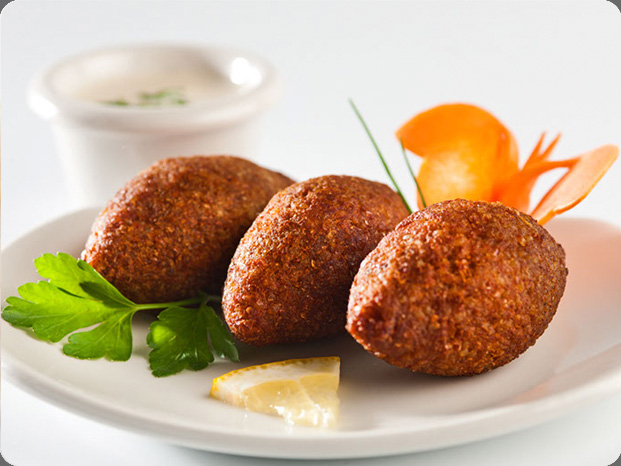Lebanese Food Makes A Splash in Tapas-Loving Madrid
Having spent a fair chunk of my college years far from the
family nest, I was deprived of my mother’s heartwarming Lebanese cooking. For
those residing in Lebanon, that hardly qualifies as a debacle—you’re smothered
with options for Lebanese cuisine, be it the mezza or home variety. In fact, plats
du jour have become all the rage, and you can order them anywhere.
But for the expatriate population that spends time away from mother and the motherland, decent Lebanese restaurants are few and far between. When I first
moved to Boston, I recall getting inordinately ecstatic when a Lebanese food
truck parked right outside the university, curbside. I rushed out to
scan the menu and finally settled on a kafta sandwich. It came doused in laban,
totally devoid of seasoning, and strangely garnished with…no, not parsley,
onions and tomatoes as one might expect, but…falafel. Revolting.
In Paris, too, things weren’t much better. The famous
Lebanese chain Noura is rank-and-file meh,
and it’s rather pricey. I once stumbled upon a Lebanese fast-food
hole-in-the-wall near the quartier Latin,
and, desperately craving a taouk wrap, I nearly cried when I discovered the
chicken was boiled, bland and slippery—djeij
maslou2—not even remotely related to the hulking marinated cubes we all love and
adore. I tossed the sandwich in the poubelle, cursing my misfortune.
 |
| Kebbe, or "minced meat balls," at Madrid's newest Lebanese bistro Shukran |
A new and expanding chain in Spain, however, may finally be doing our cuisine justice to foreigners. Having been born nearly two years ago
in Madrid by half-Lebanese owner Bill Saad, Shukran proposes Lebanese cuisine in a very un-Arab
ambiance meant to camouflage with the local culture. The atmosphere is decidedly
hipster, targeting primarily Europeans and, indirectly, Arabs living in the city. The approach is discreet, in that besides traditional Lebanese grub,
Spanish fusion cuisine is also on order. It seems the best way to an
uninitiated belly is blending in with the familiar, and that could explain why
Shukran has really taken off.
There are three distinct concepts at Shukran. The first is
Shukran Street, a joint serving food supplied by a central kitchen and
heated on site. The average fare per person is €8. Shukran City outlets are
120 sq. m. in area and feature a more extensive menu, with half the dishes
prepared on-premises. Take-away and delivery exist, and the typical bill is €18
per guest. The largest of the trio, Shukran Gourmet, is spread across 200 sq. m.
and offers diners a comprehensive menu, with an expected cost per head of €25-30.
 |
| Outdoor terrace of Shukran Gourmet |
You won’t find clichéd Arabesque décor inside a Shukran
space. In fact, the restaurant shuns camels, tarboosh, and carpets in favor of a modern Lebanese reality that embraces the West. Health-conscious
eating is on the rise in Europe, and Lebanese cuisine fits that niche, together
with Peruvian and Japanese. Thus, demand for our Levantine cuisine is high.
Thanks to folks like Saad and his partner in the concept,
Salim Mallat Lopez--also half-Lebanese, half-Spanish--Lebanese culture and
cuisine are finally gaining exposure in countries like Spain, where heretofore
little was known of them. It’s intriguing to see that the management team
behind Shukran is a mix of Spaniards, Argentinians, Venezuelans,
Frenchmen, and other nationalities. Curiously, there are no Lebanese besides
Saad and Lopez! Perhaps those from foreign shores are better poised to
appreciate and promote that which is novel to them, and this dons them a
certain credibility a born-and-bred Libano could never hope to pull off abroad.
It goes without saying that if you’re in Madrid or planning a
trip there soon, give Shukran a try and let me know what you think. The photos
below have me salivating!
 |
| Hommos: "ambassador of the Lebanese cuisine, par excellence" |
 |
| Moussaka: roasted eggplants, chickpeas, onions, tomatoes, and garlic |
 |
| Mujaddara: "a semolina with lentils and fried onions" |
 |
| Mutabal: "eggplant caviar" |
 |
| Pastela Libanesa: rice pastry filled with beef, chicken, pine nuts, peas and raisins. I imagine this to be one of the fusion dishes. |
 |
| Sirloin skewer: kebab of beef tenderloin |



Comments
Post a Comment